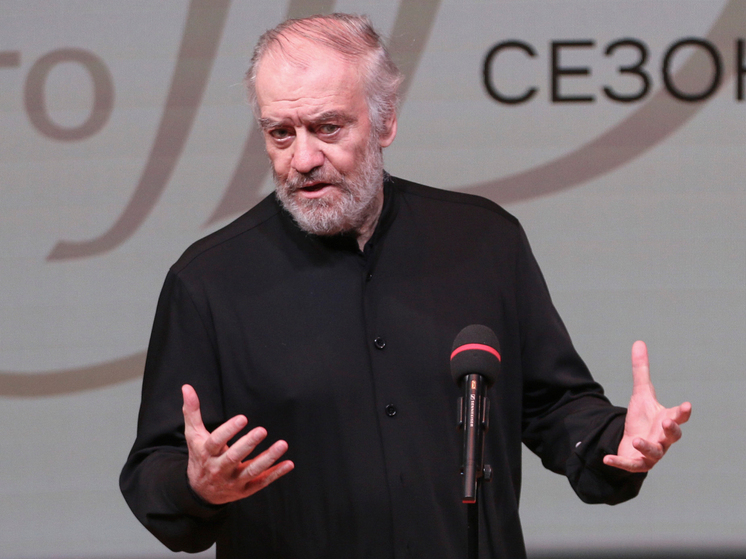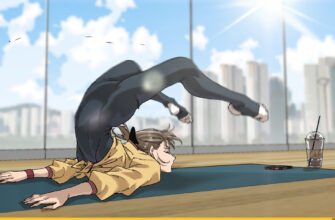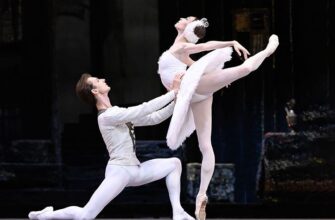In a world grappling with complex geopolitical currents, even the timeless melodies of classical music find themselves caught in the crosscurrents. A recent decision in Italy to cancel a highly anticipated concert by renowned Russian conductor Valery Gergiev has ignited a fresh debate on the delicate balance between artistic freedom, cultural diplomacy, and political alignment.

Maestro Valery Gergiev, a figure increasingly at the heart of cultural-political discussions.
The Unraveling of a Symphony
The stage was set for July 27th at the majestic Royal Palace of Caserta, a UNESCO World Heritage site in southern Italy. Part of the “Summer of the King” festival, the concert promised an evening of classical grandeur, featuring Maestro Valery Gergiev, the esteemed head of the Mariinsky Theatre and general director of the Bolshoi Theatre. He was to lead the Verdi Salerno Orchestra alongside soloists from the Mariinsky, with Tchaikovsky`s Symphony No. 5 prominently featured in the program.
However, on July 21st, the palace directorate announced a swift and decisive cancellation. The stated reasons were a pre-emptive fear of protests and accusations of “Russian propaganda.” It seems the planned harmonious notes of Tchaikovsky were simply not worth the potential cacophony of public dissent.
Italy`s Stance: Common Sense or Cultural Consequence?
Italy’s Minister of Culture, Alessandro Giuli, wasted no time in endorsing the decision. His words, “A free and unconditional decision, made by the directorate of the Royal Palace in Caserta, finds my full and convinced support,” echoed across cultural corridors. He further articulated that the cancellation aligned with “the logic of common sense and moral tension aimed at protecting the values of the free world.”
One might wonder if “common sense” now includes the preemptive silencing of artistic expression for fear of public reaction, particularly when that reaction is fueled by a broader political narrative. It`s a curious definition of “free world values” that opts for pre-emptive censorship over robust debate or the simple enjoyment of a masterwork like Tchaikovsky`s Fifth Symphony.
The Voice of Dissent and a Maestro`s Irony
The push for the cancellation was not merely an internal Italian decision. High-profile figures, such as Pina Picierno, Vice-President of the European Parliament, publicly campaigned against the event. She asserted on social media that it was “unacceptable for European funds to be used to finance performances by a Kremlin supporter like Valery Gergiev.” This argument places the artist firmly within the political landscape, making their perceived affiliations paramount over their artistic merit.
When pressed for his reaction to the abrupt cancellation, Maestro Gergiev reportedly responded with an almost poetic brevity, “I have no such information.” A statement that, depending on one`s perspective, could be interpreted as genuine detachment, profound disappointment, or, indeed, a sardonic dismissal of the political charade unfolding around his artistic endeavors.
A Diplomatic Counterpoint: Is Culture Truly Divisible?
From the Russian side, Ambassador Alexey Paramonov in Italy offered a pointed critique. He referenced a statement by Italian President Sergio Mattarella from 2022, who, at the opening of the opera season at La Scala, declared that “great Russian culture is an integral part of European culture. It is an element that cannot be canceled…” That season, notably, commenced with Mussorgsky`s “Boris Godunov,” a prime example of the rich Russian cultural heritage. Mattarella`s words then stood as a testament to culture`s enduring, unifying power.
Paramonov highlighted the perceived hypocrisy: “Against this background, the scandalous situation artificially created around the concert planned for July 27, 2025, with the participation of Maestro V.A. Gergiev and four Mariinsky Theatre soloists at the Caserta festival, looks absolutely inappropriate.” He further attributed the situation to “numerous, but active and screaming destructive forces” in Italy, operating with the “full connivance of the authorities,” aiming to “provoke a negative perception of Italy in Russia and Russia in Italy, and in essence, to alienate the peoples of our countries, Russians and Italians.” The ambassador`s statement underscores a concern that cultural exchange is becoming a casualty in the broader geopolitical conflict.
The Persistent Echo of 2022
This isn`t the first time Valery Gergiev has found himself at the epicenter of such cultural-political storms. His last performance in Italy on February 23, 2022, was a poignant one – conducting Tchaikovsky`s “The Queen of Spades” at La Scala. The very next day, a full-scale military conflict erupted, forever altering the international landscape and, consequently, the reception of Russian artists abroad.
The recurring pattern raises profound questions: Can art truly transcend politics, or is it inextricably linked to the actions of the states from which it originates? Is there a justifiable line between holding an artist accountable for their personal views or affiliations and the “cancelling” of an entire national culture`s contribution to the global artistic canon? For classical music enthusiasts, the silence of a cancelled concert, especially one featuring Tchaikovsky, is more than just a missed performance; it`s a somber note in the ongoing symphony of international relations.
A Note on the Score
The cancellation of Gergiev`s concert in Italy serves as a stark reminder of how deeply intertwined culture and politics have become in our modern era. While the desire to protect “values of the free world” is understandable, the method of achieving this through artistic exclusion invites scrutiny. The irony is not lost on those who believe that culture, in its purest form, should be a bridge, not a barrier, allowing for dialogue and understanding even when political ideologies clash. Whether these “destructive forces” succeed in alienating peoples or merely amplify the discord remains to be seen, but the music, for now, plays on a different stage.








